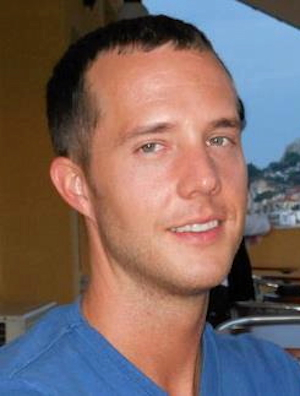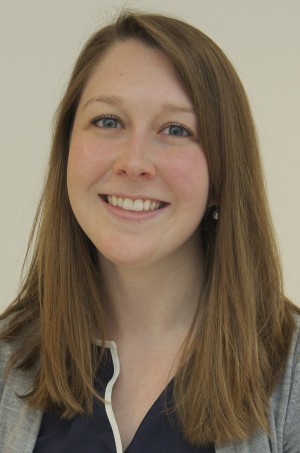With their naming as the 2015 Pharr/Buchenau Travel Grant recipients, UNC Charlotte history graduate students Chris Kinley and Marissa Nichols will travel abroad to study Greece and World War I and the impact of the 1942 smallpox epidemic in Mexico.
Kinley and Nichols will each receive $2,500 to travel abroad to conduct research for their master’s theses. The Pharr/Buchenau Travel Grant is an outcome of a long-standing collaboration between Henry Neal Pharr II and the UNC Charlotte Department of History. Inspired by Pharr’s intellectual curiosity and lifelong determination to educate himself and others, the grants provide graduate students with resources to help them find answers to their vital research questions. The grant will help to pay for costs such as travel, board, subsistence, and research expenses.
“This spring we received a record number of outstanding applications for the Pharr/ Buchenau travel grants, which made selecting the top both challenging and intellectually rewarding,” said Amanda Pipkin, associate professor and interim director of graduate studies in the Department of History.
“Due to the generosity of the donors, in addition to the two scholars chosen for the $2,500 awards, four students will each receive $500 to help defray their research expenditures,” Pipkin said. “They are Brian Hardman, Maria Paula Andrade, Denisse Andrea Guzman, and Julie Hawks. We thank the students for their submissions and also their diligent and interesting work.”
Nichols will use the grant to conduct research on the 1942 smallpox epidemic in Mexico and its eradication. “With this grant, I will spend three weeks in Mexico City investigating the epidemic and its impact on public health in national and departmental archives,” Nichols said.
She will consider questions such as how the epidemic and the eradication of smallpox shaped and informed larger political, social, and medical debates in Mexico in the 1940s. The research will investigate how provinces and patients received the state’s vaccine-oriented program and how they, in turn, shaped the process. Other questions she will explore will consider the role of global institutions such as the Pan American Health Organization.
“An exploration of such questions will reveal exciting insights into the last smallpox epidemic—a turning point for Mexican medicine, public health, and politics, as well as a lasting effect of the revolution of the 1910s,” she said. “My own work will explore the interplay between local, national, and global forces that is deserving of further attention. I will contribute to the small number of works on Mexico post-1940 and even smaller number of histories on medicine and public health, filling a gap in historiography.”
 Kinley plans to research Greece and World War I, the culmination of the Greco-Turkish War and the population exchange during 1919-1923.
Kinley plans to research Greece and World War I, the culmination of the Greco-Turkish War and the population exchange during 1919-1923.
“I will spend 20 days in Athens investigating the General State Archives, and I will conduct research at the Benaki Museum, where the private and political correspondence of Eleftherios Venizelos, the former Greek Prime Minister during the war, is housed,” Kinley said.
“World War I has become a hot topic for scholarly debate, yet surprisingly, there has been little research conducted on Greece’s role in this major event in world history,” he said. “I will investigate questions regarding Greece’s irredentist movement and land claims, and their relationship to the state’s entry into the war as well as wartime policy.”
Kinley’s topic regarding Greece and World War I will contribute to the growing field of Modern Greek Studies.
“This project will not only contribute to the study of World War I, but my study of the extermination programs in Turkey and the population exchange of 1923 will also assist historians in gaining a better understanding of genocide, population exchanges, and state-sponsored assimilation programs in the aftermath of war,” Kinley said.
Honorable Mention Awards
Those receiving smaller research grants, as honorable mention honorees, each is receiving $500 to help assist with research expenditures.
Hardman intends to research the connection between Kentucky author Alice Hegan Rice and Mary Bass, the Louisville resident who inspired her character “Mrs. Wiggs.” His research will observe the fictional representation of poverty and the harsher realities behind them during the Progressive Era. He will address the Progressive reform and slums of Louisville.
Andrade will investigate the history of slave children in the urban centers of Brazil, focusing primarily on the Northeast region. Andrade intends to analyze how the demise of slavery shaped the emergence of child poverty in urban Brazil by focusing on social realities and legal regulations.
Guzman will conduct research on the leadership of indigenous women and Ecuadorian politics. Her research will delve into the organization of women and their leaders at the local and national levels.
Hawks intends to observe the American and Japanese remembrance and memorialization of the Hiroshima and Nagasaki bombings. Her research study will focus on how the remembrance and public memorialization of the atomic bombings have changed over time.
Words: Michael Eccles; editing: Taryn Walls, Student Communications Assistants








